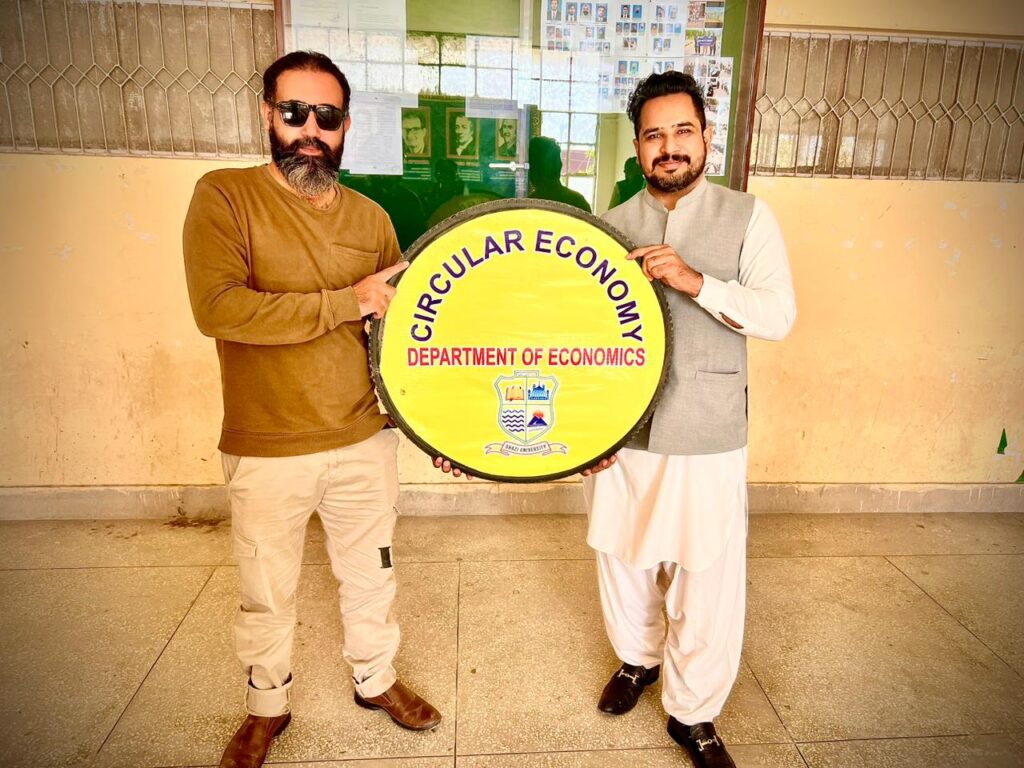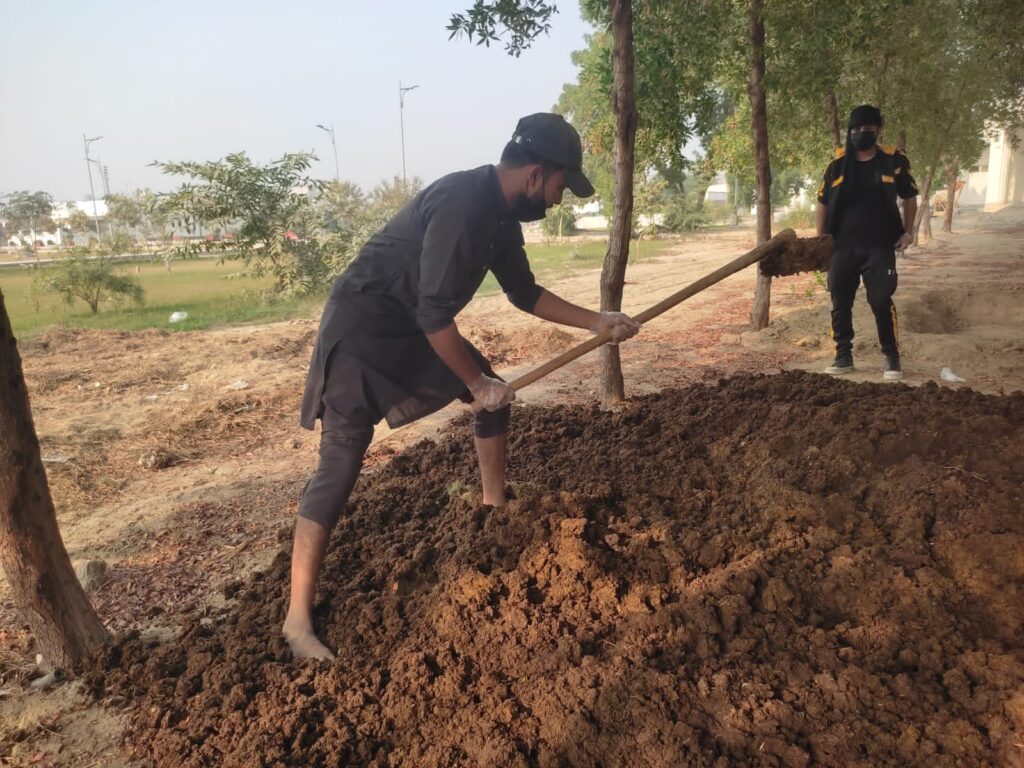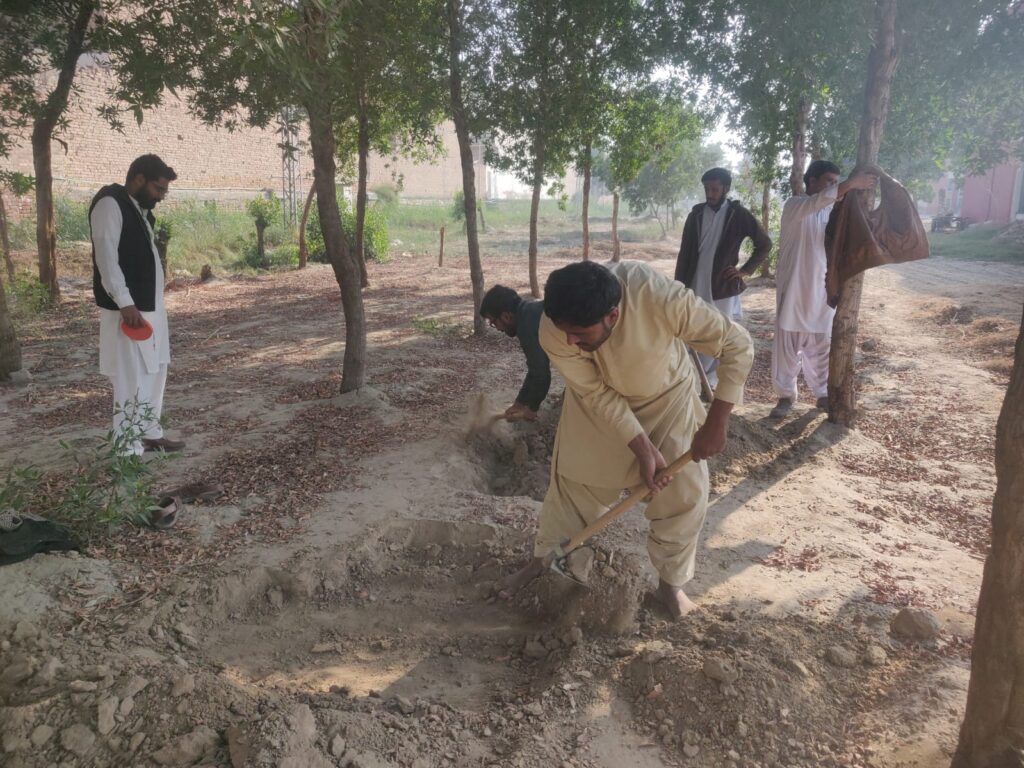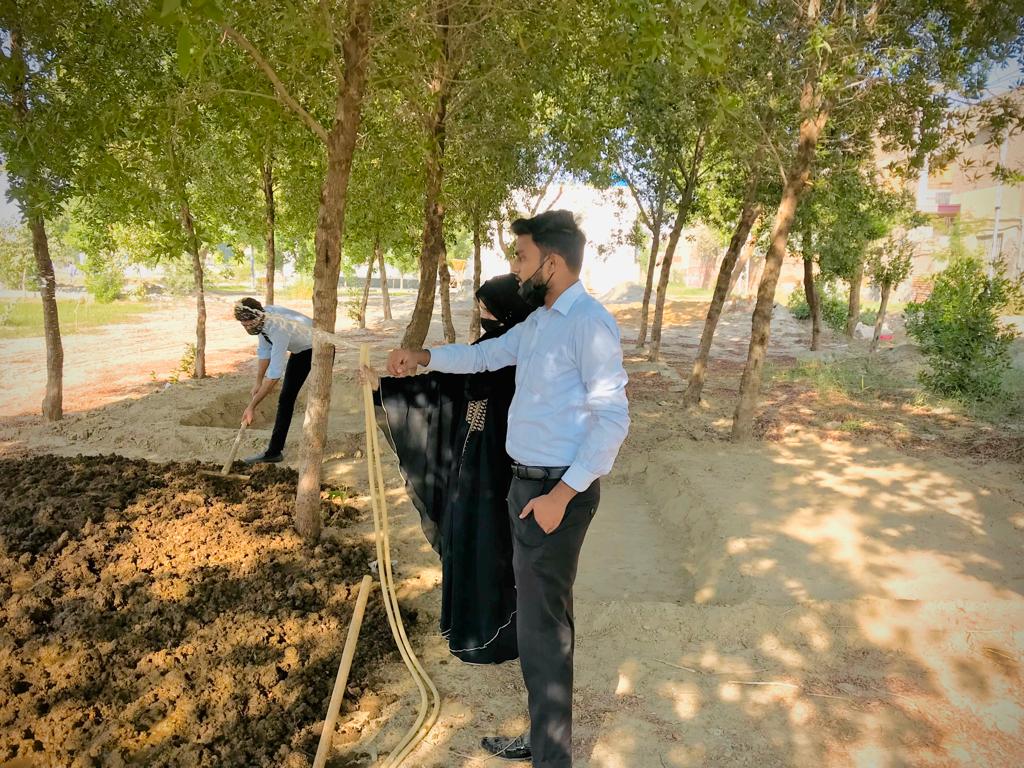ghazi
The First Academic scarabs

Future is where Regeneration and community involvement are taking center stage, Ecoist has initiated an initiative to set that stage for a regenerative and Circular economy.
Vermicomposters function same way as scarabs do in Nature. Just as scarabs aid in breaking down organic matter, our composting enthusiasts with their Eisenia Fetida earthworms, transform organic waste of their surroundings including the kitchen scraps into nutrient-rich vermicompost. Much like scarabs contribute to the natural recycling process, vermicomposters play same crucial role in converting waste into a valuable resource, embodying the harmony and efficiency of nature’s recycling mechanisms.
Our Vermicomposting Communities, we name them Scarabs are community-owned vermicomposting farms that stand as a beacon of hope for the environment and communal unity. Much like the scarab beetles that facilitate decomposition and rejuvenation in nature, the vermicomposting communities, Scarabs, play a parallel role in environmental conservation.

We Understand that Sustainability and Regeneration may never attain its pace without involvement of students and Academia. Ecoist is crafting a unique narrative that began with the tale of a pioneering composting community, the Rohi Scarabs, now expanded to another Milestone known as Ghazi Scarabs, a community of student composters from Ghazi University of Dera Ghazi khan.
As the Rohi Scarabs flourished, their story echoed across the educational corridors of Ghazi University. Here, Dr Imran Lodhi, a Professor with an ambitious regenerative mindset from the Faculty of Economics caught wind of this transformative movement and so with his sheer efforts the Ghazi Scarabs were born.
Mission
Fostering unity through vermicomposting, our Scarab communities reclaim waste, enrich soil, and ignite sustainable change for a greener world.
Vision
Empowering Scarabs globally to champion regenerative practices, cultivating harmony between humanity and nature, one composted waste at a time.
Impact
Scarab communities inspire circular economies, restore soil health, and exemplify collaborative environmental stewardship, resonating hope for a harmonious planet.
The Spark at Ghazi University
Basham Zen, Founder of Ecoist presenting the Vermicomposting – The paradigmatic Prototype of Circular Economy to the Master students of faculty of Economic at Ghazi University, Dera Ghazi khan.
The RE’volution
Ghazi Scarabs Take Flight

Picture this: Master’s students, armed with the knowledge of economics, diving headfirst into the practical realm of sustainability and Regeneration. They are upto turning the waste papers, cardboards, and organic treasures from university canteens into the Black Gold called vermicompost. They have embarked on a journey that transcended textbooks.
Dr Imran Lodhi formed 2 composting groups at faculty of Economics comprising of 6 male and 4 female students. They are now working on their vermicomposting beds that are expecting to grow exponentially after every 45 to 60 days. A healthy competition is there between the groups and in the end of year the winning group will be the one that breed maximum number of composting worms and produced maximum vermicompost.
Beyond Composting: Cultivating a Mindset
Ecoist’s Scarab initiative had taken root in the fertile grounds of academia. The Ghazi Scarabs, much like their predecessors, were not merely composting waste; they were cultivating a mindset. A mindset that viewed waste not as a burden but as a resource waiting to be reborn.
Impact Beyond the Campus: A Ripple Effect
From Campus to Community
The journey of Ghazi Scarabs is a testament to the power of community and education. It’s a story of students who, amidst the rigors of economic studies, found a calling to contribute tangibly to the environment. Their journey is a beacon for universities worldwide, a model of how academic institutions can become epicenters of sustainable change.
“Ghazi Scarabs are Ambassadors and Seeds of Sustainability who are Transforming Minds by Transforming Waste”
 What makes Ghazi Scarabs special isn’t just their commitment to vermicomposting. It’s the ripple effect they create. Through their initiative, they influence not only their immediate surroundings but also the minds of those around them. Each compost pit they nurture is a small but impactful step toward a more sustainable future.
What makes Ghazi Scarabs special isn’t just their commitment to vermicomposting. It’s the ripple effect they create. Through their initiative, they influence not only their immediate surroundings but also the minds of those around them. Each compost pit they nurture is a small but impactful step toward a more sustainable future.
Ecoist’s Scarab initiative is no longer just about waste; it’s about nurturing a sense of responsibility. The Ghazi Scarabs, like their namesake beetles, are rolling a ball of sustainability, one that gathers momentum as it moves forward.
Tying Academia back to the Earth
The Formation of the Ghazi Scarabs marks a new era, one where youth take charge of their ecological destiny. It beckons us to rethink our relationship with the environment and embrace practices that harmonize with nature’s rhythm. It underscores the potential of collective efforts to drive positive change. These student armed with knowledge are actually tying the academia back to the earth, transforming educational structures into crucibles of change where waste becomes wealth, and education blooms into environmental stewardship.
The Broader Narrative is to Expand from a Local Endeavor to Global Movement
As we celebrate the journey of Ghazi Scarabs, we also acknowledge the broader narrative unfolding. Ecoist’s Scarab initiative, starting as a local endeavor, is evolving into a global movement. The composting pits in Rohi Desert and Ghazi University are interconnected nodes in a network of change, where each scarab community contributes to a regenerative planet.
“Our journey is not just about Vermicomposting but about sowing the seeds of a regenerative tomorrow.”
We strive to make the story of Ghazi Scarabs a guiding north star for Acadamia worldwife, a hope and a reminder that in the nurturing grounds of education, seeds of sustainability can sprout into mighty trees of change.
